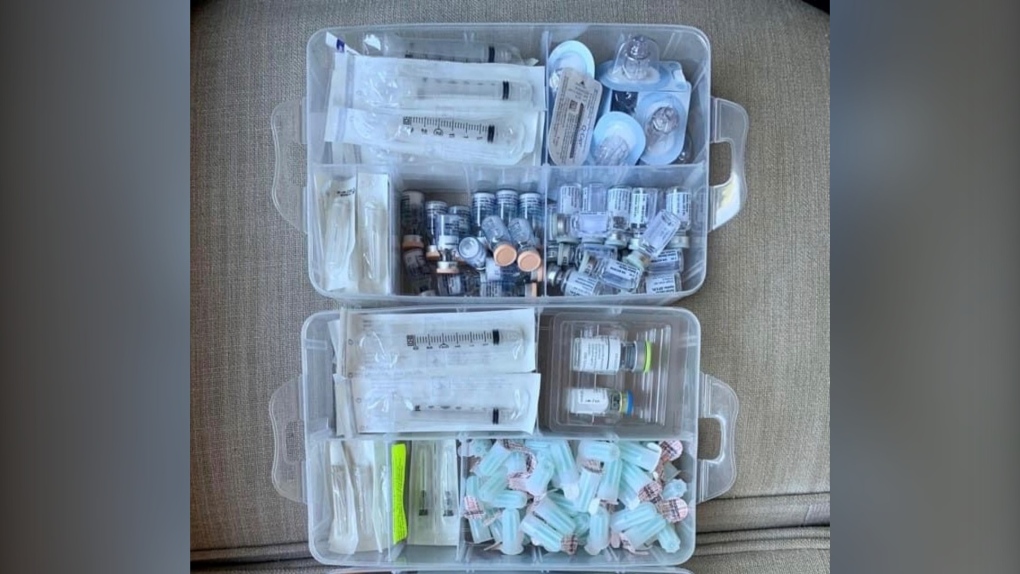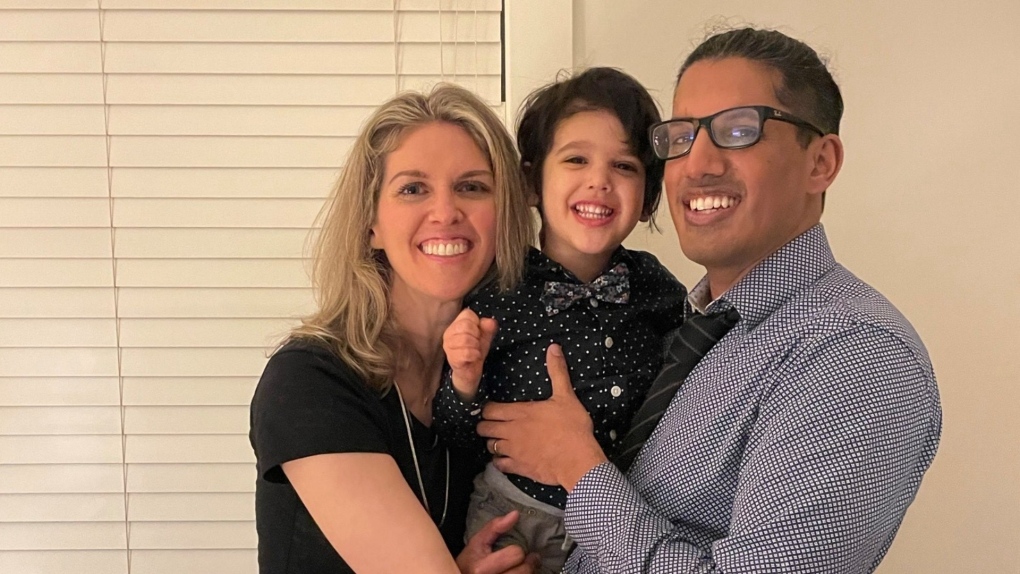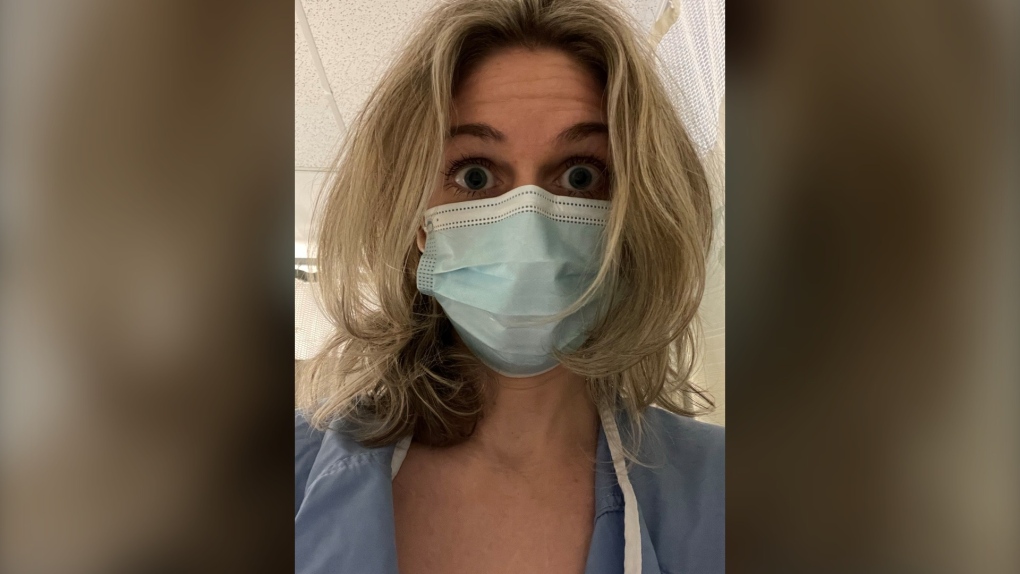Infertility Awareness Week: Experts call for procedures to be covered in B.C.
Infertility is becoming an increasingly common medical condition around the world. However, in British Columbia, there are many barriers to accessing care.
Experts say our province is lagging behind and because of that, many people that need help are falling through the cracks.
FILLING THE GAP
Laura Spencer has been advocating for better resources since she and her husband were diagnosed with infertility several years ago.
Spencer has polycystic ovarian syndrome which often affects ovulation.
“My husband has sperm issues which is also not that uncommon and for us the only fertility treatment was IVF and we were devastated,” said Spencer.
Because they were both young, healthy, and active people, the news took them by surprise.
They considered other options like adoption, but in the end, they wanted to try for a biological child.
“Everybody has a right to try and have a baby of their own with their own genetic material,” said Spencer.The couple decided to consult their family physician and immediately noticed gaps in the system.
“Not all family doctors have the same information about fertility. So we ended up having to do a lot of research on our own and we really pressed to have a semen analysis early,” she explained.
They knew the decision to pursue IVF was a big commitment.
“It's like a full-time job on top of a full-time job. So you have to plan with your work, you have to plan with your partner, you have to plan with your social engagements and cut off some opportunities. You know, maybe it's a promotion at work,” said Spencer.
 This photo, provided by Laura Sepncer shows some of the medical supplies required for infertility treatment.
This photo, provided by Laura Sepncer shows some of the medical supplies required for infertility treatment.
Spencer ended up changing careers, becoming a fertility coach after she discovered there was a need in B.C.
“I wanted to be the change, so I provide that support. I provide that sounding board, I provide the information because the fertility world – it's overwhelming, it's confusing,' she said.
The couple was eventually successful, welcoming a son into the world. The process has cost them $25,000 so far, with more expenses anticipated as they try for a second baby.
“It's a hard pill to swallow when we know that some people have babies for free and they get to do it the fun way. IVF is not the fun way, but it's a treatment option for people like us,” said Spencer.
 Laura Spencer and her husband welcomed a son after undergoing IVF treatment for infertility. They are hoping to add a second child to their family.
Laura Spencer and her husband welcomed a son after undergoing IVF treatment for infertility. They are hoping to add a second child to their family.
B.C.’s BARRIERS
Spencer found that navigating between the public to private system was challenging. While some tests are covered by B.C.’s Medical Services Plan, treatments are not.
“There's funding for some testing and there's funding for checking in on your hormone imbalances and semen analysis. But there's not anything for the procedure itself,” explained Spencer.
There are about a dozen fertility clinics in the province only three offer IVF egg retrieval and all of those centres are in Metro Vancouver.
The distance to the centres can be a deterrent for those living outside the region.
“We've been seeing an increase in demand for our services. Fortunately, these days, I think we've been able to keep wait times to about two to three months,” said Dr. Bonnie Woolnough, a reproductive endocrinologist at the Olive Fertility Centre in Vancouver.
But at that point many British Columbians are already months, if not years, deep in delayed diagnoses and testing backlogs.
“Time, when it comes to fertility, is precious and so when you delay that further, your options diminish,” said Spencer.
“For some it can be the difference between having a baby and not,” she added.
Around 17.5 per cent of the adult population – roughly one in 6 people worldwide – experience infertility according to a recent study by the World Health Organization.
That statistic is reflected in Canada as well with the WHO finding limited variation in the prevalence of infertility between regions.
“The reason people aren't screaming from the mountaintops is because there's the shame that like, 'Oh my goodness, I can't afford to have a baby,'” said Spencer.
“And it’s just because we live in B.C,” she added.
Treatments can range from mild treatments such as intrauterine insemination or IUI. That’s where samples of sperm are prepared and placed directly into the uterus.
Fertility treatments, including hormones to bring forward extra eggs are also an option.
Not all people require IVF, which is a much more technologically advanced procedure that involves taking the eggs out of the person's body to combine them with the sperm in the lab, and then placing embryos back into the uterus.
But if they do need that extreme intervention many can’t afford it.
It can cost up to $20,000 a cycle, so finances are often the biggest barrier.
“Some of the treatments that we offer are just out of reach. And so we know that the proportion of patients who need fertility treatment is way higher than the ones that we actually see,” said Woolnough.
She says having discussions about costs with patients is extremely difficult.
“Honestly, it's absolutely heartbreaking to be able to sit in front of somebody and say, ‘I know this is the right treatment for you. This is the treatment that's most likely to result in a baby.’ And for them to have to say, you know, I get that, but unfortunately, it's out of reach. It's devastating,” said Woolnough.
 Laura Spencer provided this photo, taken when she was undergoing IVF.
Laura Spencer provided this photo, taken when she was undergoing IVF.
The lack of public funding has created a two-tiersystem within reproductive health care in the province, according to Spencer.
“Everybody has the right to reproduce if they choose and it unfortunately doesn't discriminate based on the money they have,” she said.
However right now, B.C. does.
“Infertility is a medical condition, it causes some supreme impacts for patients' quality of life to not be able to grow the family that they wish to. And as such, it really should be a treatment that is included in the health services plan,” said Woolnough.
Seven provinces currently provide various unequal forms of financial aid for procedures. B.C, Alberta, Saskatchewan, and the territories do not.
“We should all be knocking down on Adrian Dix's door and say, 'Hey, there's this opportunity here. You've forgotten us’,” said Spencer.
The Health Minister told CTV News that future funding is not off the table.
“I know it's important to many people who want to have children and want to go through that process. So it's an issue. I don't reject that and that we don't have it yet. But that doesn't mean we're not looking at it,” said Adrian Dix.
This is part two of a four-part series. Check back for more this week.
CTVNews.ca Top Stories

Trudeau talks border, trade in surprise dinner with Trump at Mar-a-Lago
Prime Minister Justin Trudeau discussed border security and trade during a surprise dinner with U.S.-president elect Donald Trump at Mar-a-Lago in West Palm Beach, Fla. on Friday evening, according to senior government sources.
Man who died trying to help stranded motorist identified as Khalid Farooq, father of 5
The man who lost his life trying to help a stranded motorist Wednesday has been identified as Khalid Farooq.
W5 Investigates 'I never took part in beheadings': Canadian ISIS sniper has warning about future of terror group
An admitted Canadian ISIS sniper held in one of northeast Syria’s highest-security prisons has issued a stark warning about the potential resurgence of the terror group.
Are scented candles bad for you? What the science says
Concerns about the safety of candles are rooted in the chemical reactions that occur when you burn them, as well as in the artificial fragrances and colorants that contribute to the various scents you may love.
It's time for a good movie this holiday season, here's what's new in theatres
This holiday season has a special edition at the theatres with movies "that everyone has been waiting for," says a movie expert from Ottawa.
Poilievre suggests Trudeau is too weak to engage with Trump, Ford won't go there
While federal Conservative Leader Pierre Poilievre has taken aim at Prime Minister Justin Trudeau this week, calling him too 'weak' to engage with U.S. president-elect Donald Trump, Ontario Premier Doug Ford declined to echo the characterization in an exclusive Canadian broadcast interview set to air this Sunday on CTV's Question Period.
Emboldened 'manosphere' accelerates threats and demeaning language toward women after U.S. election
An emboldened “manosphere” has seized on Republican Donald Trump ’s presidential win to justify misogynistic derision and threats online.
Montreal researchers make breakthrough discovery in fighting HIV
Researchers in Montreal have made a breakthrough discovery in HIV research by finding a way to expel the virus from its hiding places and destroy it.
Cucumbers sold in Ontario, other provinces recalled over possible salmonella contamination
A U.S. company is recalling cucumbers sold in Ontario and other Canadian provinces due to possible salmonella contamination.
































